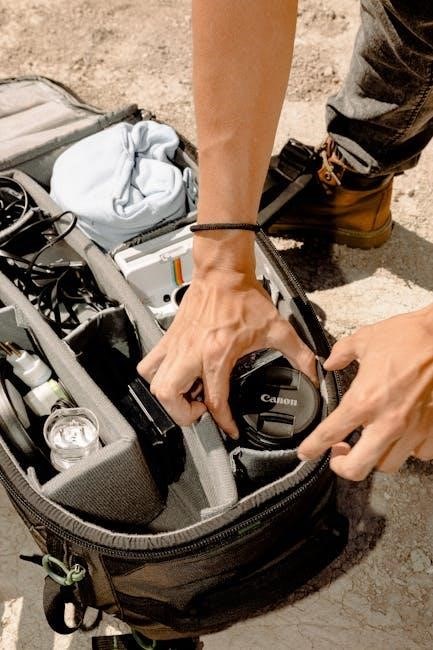
Revolutionary kits enable seamless manual-to-automatic transmission conversion, offering effortless gear shifts and reduced driving stress. Suitable for various vehicles, these kits provide a cost-effective solution for enhanced driving experiences.
Overview of Manual to Automatic Conversion Kits
Manual to automatic conversion kits are innovative solutions designed to transform manual transmission vehicles into automatics. These kits offer a cost-effective alternative to replacing the entire transmission, with prices ranging from $15,000 to $30,000 for a fully fitted conversion. Modern options like the Auto-Magic kit promise quick, 5-minute installations, reducing the complexity traditionally associated with such conversions. These kits cater to a wide range of vehicles, providing enhanced driving comfort and convenience, especially for those seeking to eliminate manual clutch operation. They are particularly popular among drivers seeking effortless gear shifts and reduced stress in urban environments.
Importance of Understanding Transmission Conversion
Understanding transmission conversion is crucial for making informed decisions about switching from manual to automatic. It involves recognizing the benefits, such as reduced driver fatigue and smoother urban driving, while also addressing potential challenges like compatibility and cost; Proper knowledge ensures that vehicle performance and value are maintained, avoiding costly mistakes. Additionally, it helps in selecting the right kit for specific vehicle models, ensuring a seamless transition and optimal functionality. This understanding is key to maximizing the advantages of an automatic transmission system.
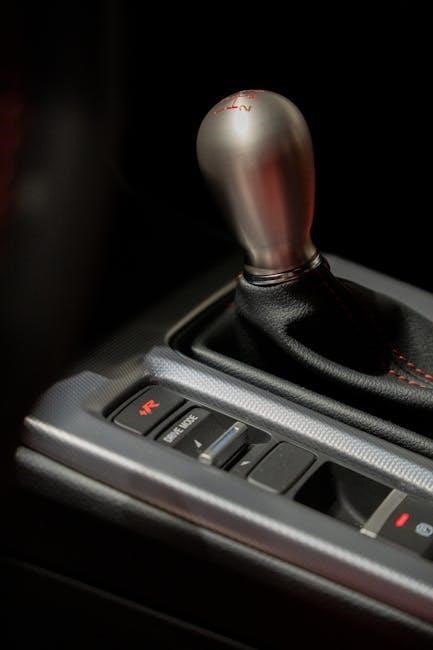
What Is a Manual to Automatic Conversion Kit?
A manual-to-automatic conversion kit is a specialized system designed to transform a vehicle’s manual transmission into an automatic one, offering effortless gear shifting and enhanced drivability, with various options available to suit different vehicle types and needs, ensuring compatibility and performance.
Definition and Purpose of Conversion Kits
A manual-to-automatic conversion kit is a comprehensive system that transforms a manual transmission vehicle into an automatic one. Its primary purpose is to eliminate manual gear shifting, providing a smoother and more convenient driving experience. These kits typically include components like actuators, sensors, and control systems. They cater to drivers seeking ease of use, especially in heavy traffic or for those who prefer the comfort of automatic driving. The kit’s design ensures compatibility with various vehicle makes and models, offering a tailored solution for different automotive needs.
Types of Conversion Kits Available
Conversion kits vary to suit different needs and vehicle types. The “Auto-Magic” kit offers a quick 5-minute transformation, while universal kits like the ACPCS system provide adaptability across various manual vehicles. Semi-automatic IMT conversions add actuators for clutchless shifting, and complete swap kits enable full automatic functionality. Each type caters to specific driver preferences, ensuring a tailored solution for enhanced comfort and convenience behind the wheel.
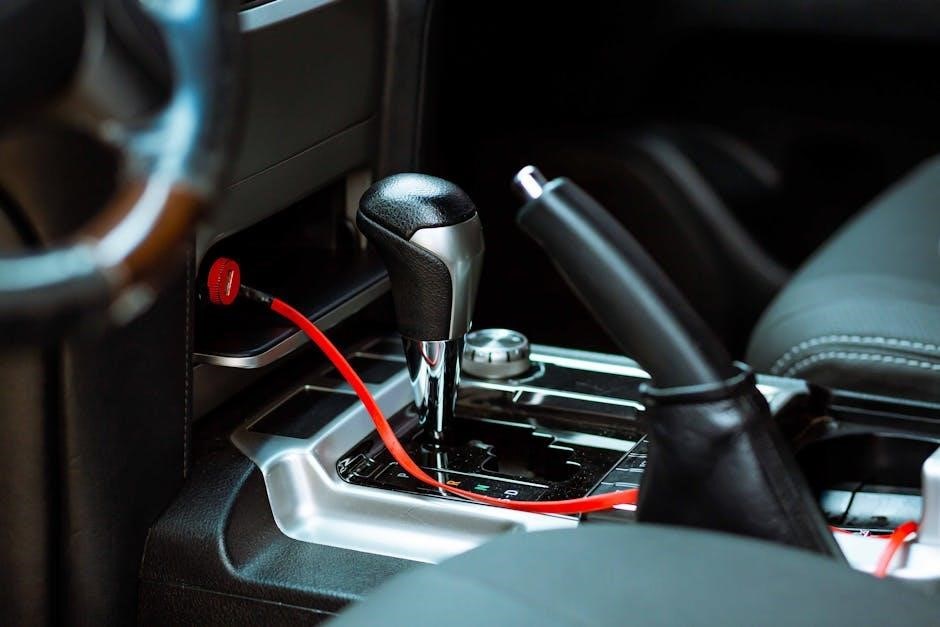
Key Components of a Conversion Kit
A typical conversion kit includes an automatic transmission unit, such as the ZF 4-speed autobox, along with essential components like actuators and control systems. The Auto-Magic kit simplifies installation with pre-assembled parts, while universal kits like the ACPCS system provide adaptable solutions. Additional components may involve overdrive units, axle regearing tools, and digital I/O extension units for seamless integration. These parts ensure a smooth transition from manual to automatic, offering enhanced driving efficiency and reduced operational stress.

Cost of Manual to Automatic Transmission Conversion
Conversion costs typically range from $15,000 to $30,000, with additional expenses for axle regearing and overdrive units, varying by vehicle and kit complexity;
Estimated Cost Range for Conversion Kits
Conversion kits typically cost between $15,000 and $30,000, depending on the vehicle and kit complexity. Additional expenses may include axle regearing ($1,000 per axle) and overdrive units. While some kits promise quick solutions, like the Auto-Magic kit converting manual to automatic in 5 minutes, costs vary widely. Factors such as vehicle type, transmission type, and labor fees influence the final price. Universal kits, like the ACPCS system, offer versatility for various vehicles, while specialized kits cater to specific models, ensuring compatibility and performance. Budget accordingly, considering both kit and installation costs for a smooth transition.
Factors Influencing the Cost of Conversion
The cost of manual-to-automatic transmission conversion varies based on vehicle type, transmission complexity, and additional modifications. Axle regearing can add $1,000 per axle, while specialized kits for models like the BMW M3 CSL or Land Rover Defender may increase expenses. Universal kits, such as the ACPCS system, offer cost-effective solutions, but bespoke kits for high-performance vehicles can be pricier. Labor costs for installation also play a significant role, depending on the mechanic’s expertise and location. Budgeting for these factors ensures a smooth and cost-effective conversion process.
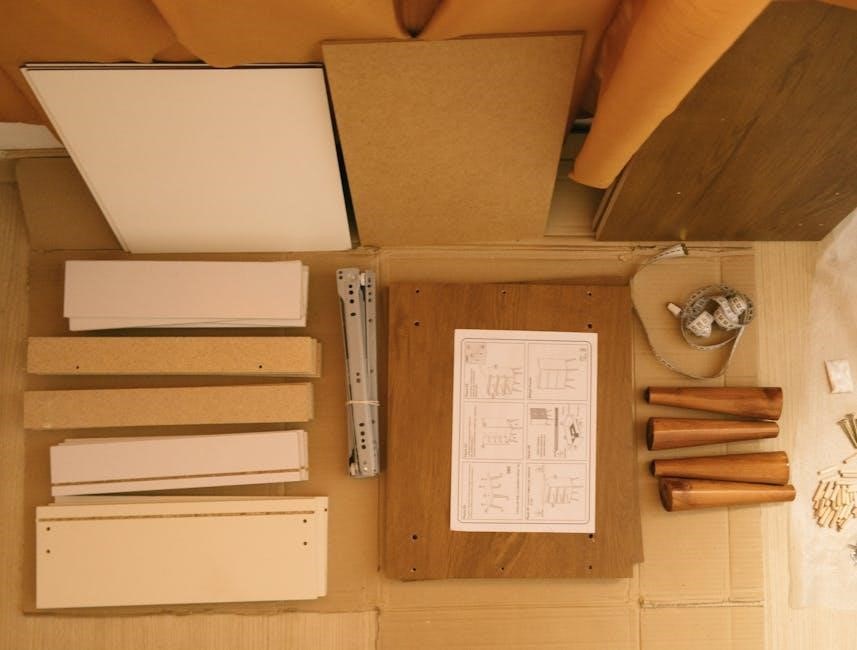
Installation Process of a Conversion Kit
Conversion kits simplify manual-to-automatic transmission swaps, offering quick solutions like the 5-minute Auto-Magic kit. Complex installations may require axle regearing or overdrive units for optimal performance.
Step-by-Step Guide to Installing a Conversion Kit
Begin by disconnecting the battery and draining fluids. Remove the manual transmission, clutch, and pedals. Install the automatic transmission, torque converter, and new pedals. Connect wiring and hydraulic lines, ensuring proper alignment. Refill fluids and test the system. Some kits, like the Auto-Magic, promise quick installation in minutes, while others may require axle regearing or overdrive units for compatibility. Professional expertise is often recommended for complex setups to avoid costly errors.
Tools and Expertise Required for Installation
Installing a conversion kit demands specialized tools, including transmission jacks, hydraulic presses, and wiring diagrams. Mechanical expertise is crucial, as improper installation can lead to system failure. While some kits, like the Auto-Magic, claim quick setups, most require advanced technical knowledge. Professional mechanics often recommend axle regearing or overdrive units for compatibility. Detailed instructions and diagnostic tools are essential to ensure a smooth process and prevent costly errors.
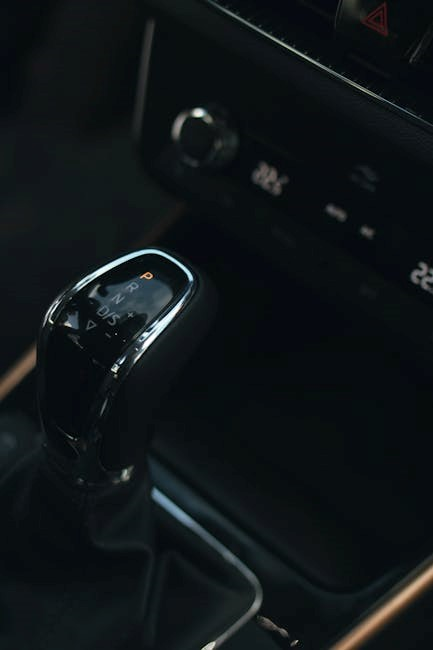
Advantages of Converting Manual to Automatic Transmission
Converting to automatic reduces driving stress, offers effortless gear shifts, and enhances overall driving comfort, making it ideal for urban commuting and reducing driver fatigue significantly.
Benefits of Automatic Transmission Over Manual
Automatic transmissions offer smoother acceleration, reduced driver fatigue, and easier operation in heavy traffic. They eliminate the need for manual gear shifting, providing a more relaxed driving experience. Additionally, automatics are often preferred in urban environments where frequent stops and starts are common. The convenience factor is significant, especially for new drivers or those seeking a hassle-free commute. Enhanced comfort and reduced stress are key advantages, making automatic transmissions a popular choice for modern drivers.
Enhanced Driving Experience with Automatic Transmission
Converting to automatic transmission elevates driving comfort, allowing for effortless gear shifts and reduced driver engagement. This enables better focus on road conditions, enhancing safety and overall control. Urban commutes become less stressful, and long-distance drives more enjoyable. Automatics also cater to diverse driving styles, providing optimal performance without manual intervention. The seamless transition between gears ensures smooth acceleration, making every journey more pleasant and efficient. This upgrade is particularly beneficial for drivers seeking a more convenient and relaxed driving experience.
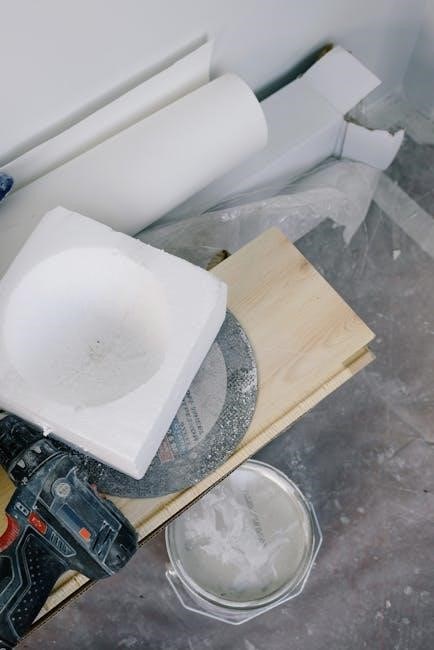
Compatibility and Vehicle Considerations
Compatibility varies by manufacturer and model, with kits available for vehicles like Honda, Yamaha, and Defender models. Conversion costs and considerations depend on specific vehicle requirements and configurations.
Which Vehicles Are Suitable for Conversion?
Vehicles like Honda, Yamaha, Aprilia, and Can-Am models are often suitable for conversion, as manufacturers provide specific kits. Additionally, cars such as the BMW M3 CSL and Land Rover Defender can be converted using specialized kits like the ZF 4-speed automatic. Compatibility depends on the vehicle’s engine type, drivetrain, and existing transmission setup. While many modern vehicles can be converted, some may require additional modifications to ensure proper functionality. Universal kits are also available for broader compatibility, catering to various makes and models, but always check specifications before proceeding.
Compatibility Issues to Be Aware Of
Compatibility issues arise when converting manual to automatic, often due to mechanical and electrical mismatches. Axle ratios may need adjustment, and additional components like overdrive units might be required. Electrical systems, such as sensors and ECU compatibility, must align for proper functionality. Some vehicles, like those with specific engine setups, may need specialized modifications. Additionally, certain conversions could affect the vehicle’s value or warranty, so thorough research is essential before proceeding with any kit installation.
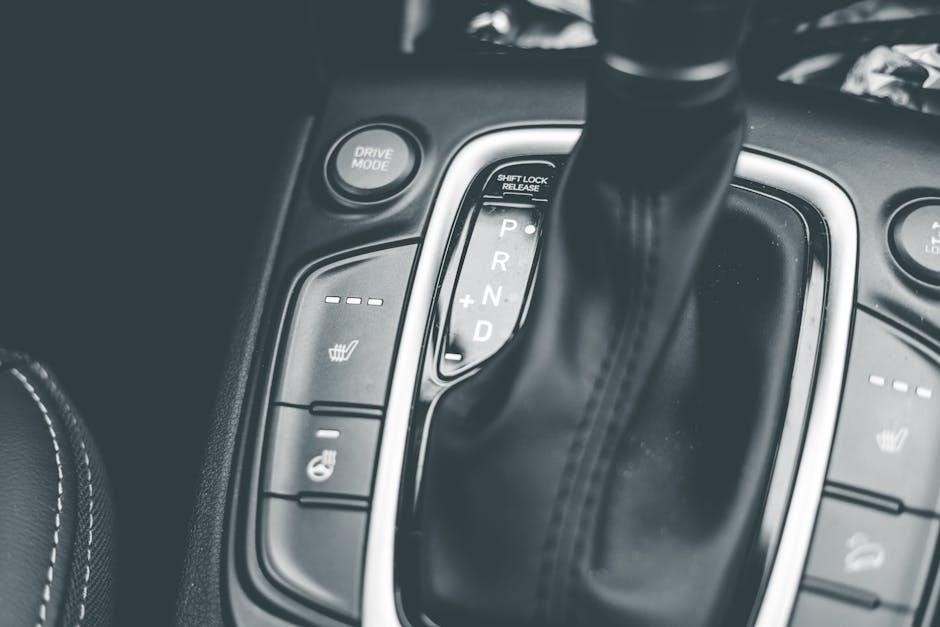
Future Trends in Transmission Conversion Technology
Emerging technologies like automatic clutch systems and universal kits simplify conversions. Electric vehicles may reduce demand, but innovations like quick-conversion kits and advanced transmission systems continue to evolve.

Emerging Technologies in Automatic Transmissions
Revolutionary advancements in transmission technology are transforming manual-to-automatic conversions. Auto-Magic kits enable 5-minute transformations, while universal clutch systems simplify the process. Plug-and-play actuators and advanced gearshift solutions are gaining traction, reducing complexity and cost. These innovations address traditional challenges, offering seamless transitions and enhanced performance. With companies like Automate India pioneering stress-reducing systems, the future of transmission conversion is becoming more accessible and efficient, catering to diverse vehicle types and driver preferences.
Impact of Electric Vehicles on Transmission Conversions
Electric vehicles (EVs) are reshaping transmission conversion dynamics. With EVs often featuring single-speed or dual-speed transmissions, the demand for manual-to-automatic conversions may decrease. However, conversion kits still find niche applications in hybrid models or classic car restorations. As EV technology advances, traditional transmission needs may evolve, but the versatility of conversion kits ensures they remain relevant for specific automotive enthusiasts and applications, bridging gaps between legacy and modern drivetrain systems.
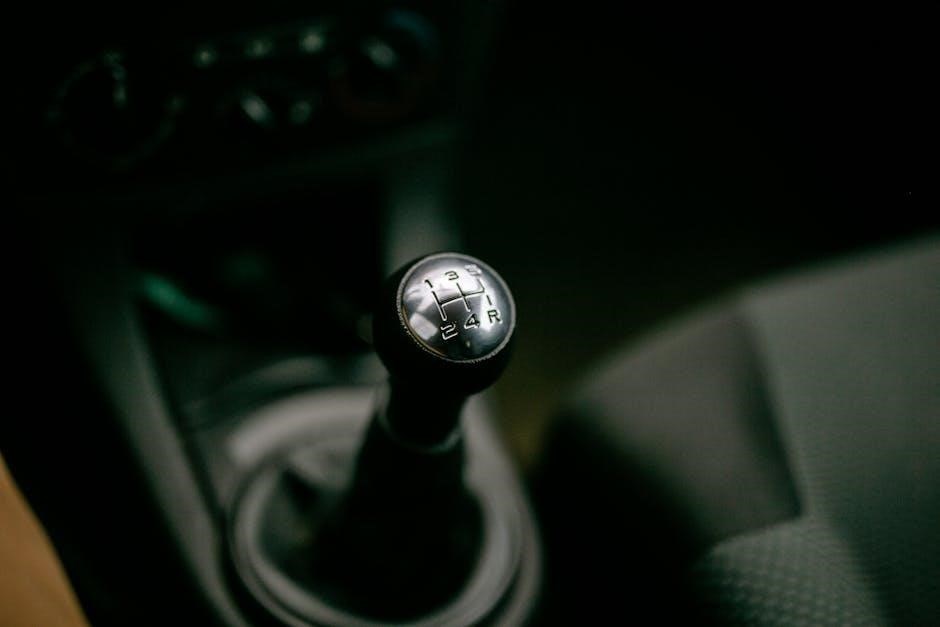
Frequently Asked Questions About Conversion Kits
Common inquiries include cost, ease of installation, and compatibility. Many wonder if conversion kits are worth the investment and how they impact vehicle performance and value over time.
Common Myths and Misconceptions
One common myth is that manual-to-automatic conversion kits are overly expensive and not worth the investment. Others believe these kits are “plug-and-play” solutions, requiring no technical expertise. However, while some kits simplify the process, proper installation often demands mechanical knowledge and tools. Another misconception is that converting a manual transmission to automatic will significantly reduce performance or value, though this depends on the vehicle and kit quality. Additionally, some think all kits are universally compatible, but compatibility varies by make and model.
_addressing Reader Concerns and Queries
Addressing Reader Concerns and Queries
Readers often inquire about the feasibility and cost of manual-to-automatic conversion kits. Many worry about compatibility with their specific vehicles and the complexity of installation. While some kits are universal, others are vehicle-specific, requiring careful selection. Additionally, concerns about performance loss are common, though modern kits often maintain or enhance driving dynamics. The cost, ranging from $15,000 to $30,000 for a fully fitted conversion, is another significant consideration. Addressing these queries involves understanding individual needs and ensuring the chosen kit aligns with the vehicle and driver preferences for a seamless transition.
Leave a Reply
You must be logged in to post a comment.